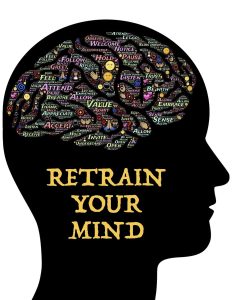
Unraveling 3 Common ADHD Misconceptions from a Counselors Perspective
ADHD is a very hot topic right now, with more accessibility to resources, information, and social media, it can seem like it’s everywhere! As a therapist, I find many parents and adults often wondering, “What really is ADHD?” and “Do you think I have it?” In fact, if you read enough about it, it can be easy to think you may be experiencing similar characteristics. ADHD is one of the most common neurodevelopmental disorders. However only 9.4% of children are diagnosed, while less than 5% of adults receive a formal diagnosis. Meaning, it may not be as common as you think! It can be easy to join the controversy since it seems everyone occasionally struggles with focus and attention. ADHD can present in a variety of different ways. Here are the top three misunderstandings I hear during my sessions:
- “Doesn’t everyone have some degree of ADHD?”
- Truth: ADHD has a strict set of diagnostic requirements that must be met for a formal diagnosis to be made. Individuals may often empathize with others who can’t stay focused, feel impulsive at times, or experience hyperactivity. The difference is that individuals with ADHD experience it to a level where their functioning is significantly impaired in multiple contexts. It is not a result of bad parenting or inconsistent schedules but rather an imbalance of neurotransmitters in the brain. ADHD gets a bad rap since it can be so frustrating to understand for neurotypical people. However, as a therapist, I advocate for the brain imbalance my clients face while providing psychoeducation to parents and individuals. Validating my client’s unique ADHD experience allows us the space to explore what life feels like in their shoes.
- “You’ll grow out of it.”
- Truth: Two-thirds of individuals diagnosed as children exhibit symptomatology as adults. ADHD most often persists into adulthood. As environments and occupations change so does the symptomology. Everyone’s ADHD experience is exclusive to them, meaning as my clients grow up they will experience it differently. It may appear to others that their symptomatology is no longer present externally as developmental stages are reached and self-awareness is learned. For instance, you might find yourself masking behaviorally, appearing calm and relaxed to mimic the norm of a workplace setting. However, the ADHD brain is still active and often overwhelmed by the variety of tasks with low dopamine reward. The good news is, as you get older you can learn to work alongside your ADHD and create environments customized to your learning style. I help my clients understand their unique ADHD patterns while brainstorming realistic shifts to their everyday life that best suits them.
- “ADHD only affects young boys”
- Truth: You can get diagnosed with ADHD at any age if symptoms have been present since childhood. ADHD originates in childhood, making it most frequently diagnosed as symptoms become more pronounced during this developmental stage. However, depending on personality types, sex, and degree of introversion and extroversion, many children can go undiagnosed if it’s not the stereotypical case. The prevailing image of an ADHD child is often the young boy running around the classroom, unable to focus longer than 3 seconds. Yet it’s crucial to recognize the complexity of ADHD lies in a dopamine chemical imbalance. The disparity in presentation may appear differently in young girls, potentially showing signs of inattention yet frequently leading to misdiagnosis. Due to societal norms, young girls are socialized to “be good” and conform to people-pleasing manners in and outside of school. Misdiagnosing can be applied to adults as well. Often finding themselves experiencing symptomology surrounding internal restlessness, lack of time management, and analysis paralysis. Symptoms ebb and flow with life, work, and home changes. Just because you can’t “see” someone’s ADHD, the effect on the brain lingers. I help all my clients sift through their thoughts, assess triggers, and create a stable, self-sufficient internal structure to thrive.
ADHD can feel like a whirlwind at times, physically and mentally, it can be exhausting! As a neurodivergent therapist, I feel like I have insight into my client’s brains and how they operate. I find our shared experience enhances the therapeutic relationship as the understanding fosters a sense of trust. I help my clients partner with their ADHD instead of letting it control them. Teaching clients to embrace their neurodiversity and become advocates for their needs empower them to thrive outside of sessions. I encourage my clients to take ownership of their ADHD by learning coping skills to calm their chaos at home and school.
To find a counselor to help with ADHD is possible. Click here for options within Get Centered. For information regarding additional services go to our home page and click on Services.
